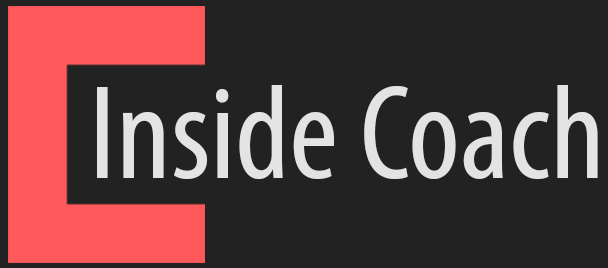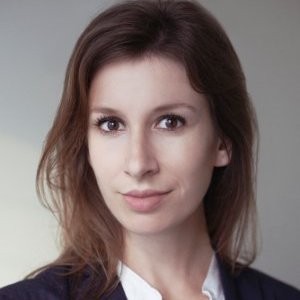Interview with Lisette from McKinsey
Lisette is about to return to McKinsey as an Associate after completing her MBA at INSEAD and working temporarily at Dalberg Global Development Consultants. Before joining McKinsey in September 2011, Lisette studied Economics and Business and European Studies at the University of Amsterdam. She has a MSc in International Political Economy from the London School of Economics and a MA in International Relations from Sciences Po in Paris
It was great interviewing her, thanks Lisette!
Access to more interviews with consultants from BCG, McKinsey, OC&C, Accenture and other firms?
Registration is free and takes less than a minute
Experiences before consultancy
“Research projects and AIESEC Internships are fun to undertake and you can learn a lot”
- What did you do before you joined McKinsey?
Before applying to McKinsey, I studied Economics and Business and European Studies in Amsterdam. I really liked the combination of focusing on one topic (Economics) in a more thorough way while also building up a broader knowledge base (politics, history, culture and languages) as part of my second bachelor in European Studies.
After I finished my high school, I spent a year learning French in Paris and Spanish in Barcelona. I already knew back then that I wanted to go abroad again soon. Luckily, my university had an exchange program with a large number of foreign institutions. I chose to go to New York for a semester, a great experience! I could not get enough of the traveling so I applied for a double Master’s program in Paris and London.
Besides my studies, I was working as a receptionist in a hotel and backpacking whenever I had some money to spend.
- What would you recommend to a student interested in consultancy with 2 more years before graduation?
First of all, I would recommend reaching out to management consultants to learn more about what the job entails. This way you will get a better sense of whether it is something that suits you and whether you will enjoy it. Business courses and in-house days are a great way to get to know the profession and the people. I participated in both a BCG and a McKinsey one-week business course and it was during those weeks that I made my decision to apply after graduation.
Once you have more info and think it is a good match, I would focus on getting in. Most consulting firms look for pro-active candidates who have worked or studied abroad, got good grades and can demonstrate some sort of team leadership. Have an honest look at your CV and think of opportunities to fill any remaining gaps. Research projects are a great way to achieve something in a team and an AIESEC internship abroad can get you foreign exposure. These are fun projects you can undertake to stand out and learn a lot.
Career orientation
“I had an amazing week and was happy to have the stereotype of consultants as slick and self-adoring crushed completely”
- How did you get to the firm you are now?
Most of my classmates at LSE and SciencesPo were looking into jobs in the public sector and international organizations such as the United Nations. I was as well. When I saw an advertisement for a BCG business course that would focus on solving a pressing dilemma for the World Food Program, I was immediately interested. Not because of BCG – I had never heard of the firm and did not know what management consulting was – but because of the World Food Program. Miraculously I still got to come along. During this one week I was overwhelmed by the challenge of the problems we had to solve and the people I got to work with. They were very smart, super social and a lot of fun!
When I got closer to graduation, I wanted to get to know other consulting firms and joined McKinsey for a business course. Again, I had an amazing week and was happy to have the stereotype of consultants as slick and self-adoring crushed completely. Everyone was so open and helpful!
After I completed an internship at the Permanent Mission of the Netherlands (kind of our embassy) at the United Nations, I made up my mind: while I still very much believed in the work of organizations such as the UN, I felt that I could learn more by spending my first few working years in a fast-paced environment like McKinsey. And so I applied.
- Did you check out multiple firms and what did you find were the differences?
I do not think that there is a massive difference between the largest management consulting firms. All offer incredibly learning opportunities, smart and social colleagues and international opportunities. I have talked with people from Bain, Booz (as it was then known), BCG and McKinsey and think I could have loved working at each one of these companies.
That being said, I remember that I spent half of the McKinsey business course laughing uncontrollably. I also really liked the fact that my McKinsey interviewers clearly wanted me to succeed, which was not the case for all of the other firms. These small things helped me to make a decision.
My experience might not apply to you of course: if you really want to work in a particular industry or region, it is always a good idea to check where you can best accommodate your wishes.
- How do you find your time as a consultant so far?
It has been a hell of a ride! I don’t think that there is another place where I could have learnt more in only 2 years. Solving issues in a structured way, learning how to organize my time better, identifying my own limits and indicating them to others – these are just a few of the skills I have been working on. Of course, these skills are all still work in progress, but it was great to notice how everything I learnt already helped me during my MBA and my work at Dalberg.
Another thing that I really liked where the impressive colleagues I have met during my first 2 years. The hours can be long, but if you feel like you are part of a team where everyone is doing his or her part and one silly joke is made after another, time really does fly. Many of my colleagues have become my friends
Preparation for the consultancy interview
“Although I was slightly uncomfortable practicing with someone better prepared than I was, this really made a huge difference”
- How did you prepare for your interview?
As most of my classmates were looking into completely different types of jobs, I decided to start out by reading some business case preparation by myself. This was useful for a day or two but after that it felt like more of the same thing.
I realized then that I had to drag myself out of my comfort zone and start practicing. Luckily, I knew someone who had started interviewing at consulting firms already and was willing to practice together. Although I was slightly uncomfortable practicing with someone better prepared than I was, this really made a huge difference.
When I had practiced a few times with my friend, I started practicing with others who were less prepared than I was. This also helped a lot as I spotted first hand the mistakes that I tended to make myself: not taking enough time before answering or not structuring the answers.
Preparing for the personal interview was a bit more fun as it consisted of drinking coffees with my friends and my mom. I asked the ones who know me best to describe me and tested my answers with them. This helped me to get better examples but also to sound a bit more convinced.
- How would you recommend students that they prepare for their application and interview?
For the case interview, I would recommend not to read prep books for longer than 1 or 2 days. Practice with people who have done more interviews than you have done in the beginning, and practice with people who have less experience at a later stage. Be sure to set up practice interviews at all firms where you have applied if possible. For the personal interview, ask your friends and family for examples (e.g. of a time you displayed leadership/made up a creative solution), and practice the interview questions with them.
- What are your plans and dreams for the future?
My plan for the future (and the present) is to be happy. Now of course the question is how to do that 😀
In the near future, my plan is to go back to McKinsey and learn all I can about how to motivate and coach a team. In my free time, I want to continue to do yoga and travel the world. I also want to help grow “Missing Middle”, the meso-finance institution I started together with 3 friends, so that we can help even more Ugandan entrepreneurs develop their businesses.
I have no idea what my life will look like in 5 years but as long as I have the feeling that I can make a positive change in the world, meet inspiring people and travel the world, I think I’ll be very happy.
We hope you have enjoyed this article!
More interviews with strategy consultants?
- Interview with Lotte from BCG
- Interview with Nienke from BCG
- Interview with Sebastiaan from OC&C (Dutch)
- Interview with Vincent from Accenture Strategy
- Interview with Josephine from BLOOM (Dutch)
- Interview with succesful SparkOptimus candidate (Dutch)
- 7 interviews with experienced professionals changing career tracks to consultancy (Dutch)
Access to even more interviews with consultants from BCG, McKinsey, OC&C, Accenture and other firms?
Registration is free and takes less than a minute
Interested in interviews with student (consultants)?
- Interview met Jack van De Kleine Consultant (Dutch)
- Interview with Daphne from De Kleine Consultant (Dutch)
- Interview with Selcuk, former Rocket Internet intern
- Interview with Michiel from De Kleine Consultant
- Interview with EVA from the Young Advisory Group (Dutch)
- Interview with Lieve from UniPartners Delft (Dutch)
- Interview with Katie from Integrand Delft (Dutch)
- Interview with Lotte from BCG
- Interview with Arthur from McKinsey
Related articles:

